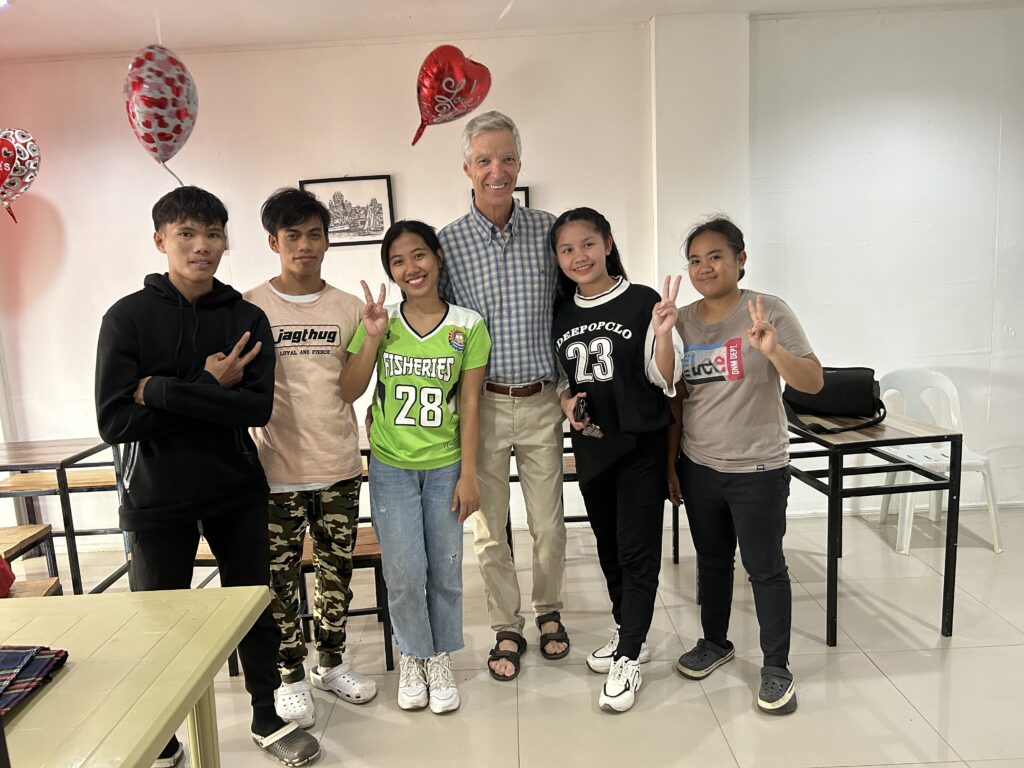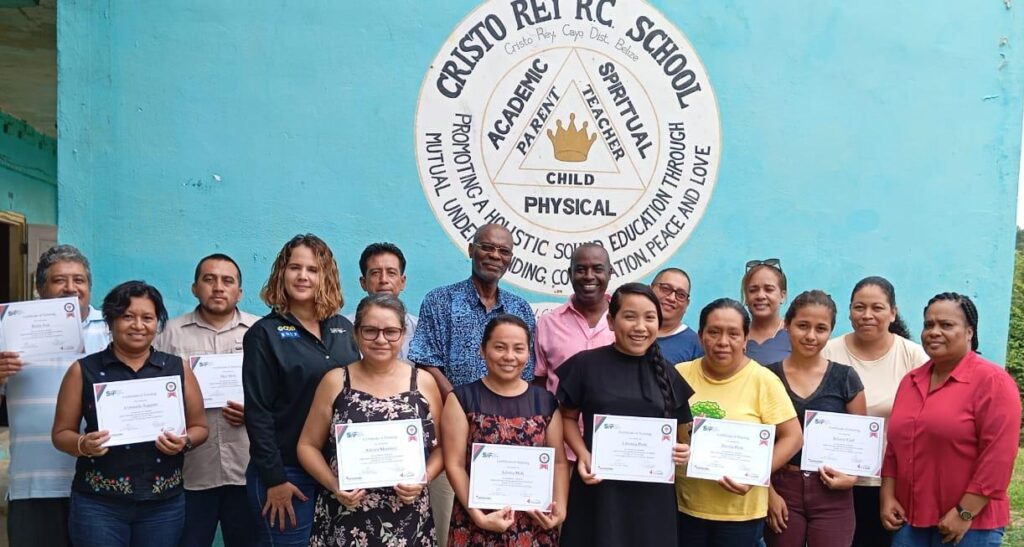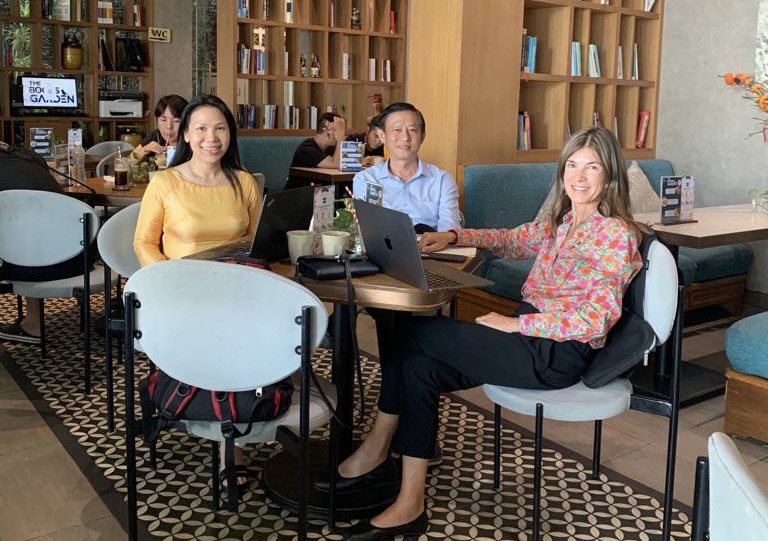Community Exchange in Yellowknife
The distance between Dornod province in Mongolia and Yellowknife, in the Northwest Territories, Canada, is about 7,000 kilometers. Despite the vast distance, the two regions share many similarities: both communities are traditionally bonded with the land, water and natural resources; each has a similar climate; and both are deeply involved in the resource development sector. It was these similarities that brought ten representatives from Mongolia to Yellowknife to explore approaches to managing the resource development sector in a socially and economically sustainable way.
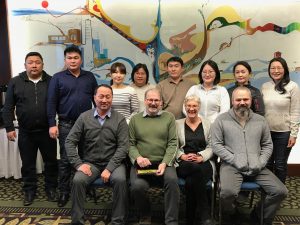
Throughout the 12-day trip, community representatives from the local government and small and medium businesses from the province of Dornod in eastern Mongolia, together with MERIT representatives Cindy Fair, Khulan Zalaa-Uul and Oyuna Shagdarsuren, and CESO VA Eitan Dehtiar, explored Canadian practices on issues such as: Impact Benefit Agreements/lands issues; integrating the local population economically with the projects; strategies to enhance the economic contribution of the projects to the local community and environmentally-friendly mining.
The group visited a wide variety of companies and attended a wide range of meetings. The trip culminated in a presentation by CESO VA Maarten Ingen-Housz on Impact Benefit Agreements, an interview with CBC Radio North, and a visit to the Geo-Science Forum and tradeshow which brought together many of the companies and people they had met with throughout their time in Yellowknife.
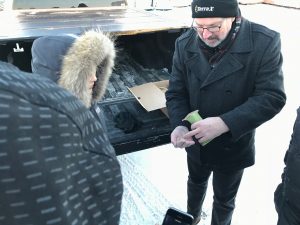 | 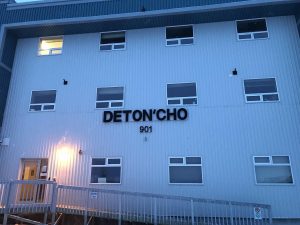 |  |
What did the Mongolian representatives take away from their time in Yellowknife? At the end of the trip the group had a chance to debrief and share their thoughts on what they had experienced. Since each member of the group came from different business or governmental backgrounds, they brought different perspectives, out of which several themes emerged.
Community Relations and Open Communication
One of the biggest themes that emerged was around having stron g community relations and open communication. The delegates remarked on the high degree of transparent communication between mining companies and local communities and the government in the Northwest Territories. This open communication helps build awareness of resource development projects, manages expectations, and highlights the importance of getting all stakeholders involved from an early stage, with a shared vision, in order for all involved to benefit.
g community relations and open communication. The delegates remarked on the high degree of transparent communication between mining companies and local communities and the government in the Northwest Territories. This open communication helps build awareness of resource development projects, manages expectations, and highlights the importance of getting all stakeholders involved from an early stage, with a shared vision, in order for all involved to benefit.
The transparency and ease of accessibility to information allow goals to be coordinated and facilitates the ability to work together towards a better understanding between stakeholders. It also can help prevent conflicts and suspicions, particularly in places such as Mongolia where the perception of the extractive sector can be quite negative.
The participants also noted the importance of strong planning for the full life cycle of mine — especially around remediation — as one of the keys to success with mining companies. Many of these community relations issues can be dealt with through solid Impact Benefit Agreements.
Impact Benefit Agreements
On the final day, VA Maarten Ingen-Housz gave a presentation on Impact Benefit Agreements – tying together many of the learnings from the meetings and visits from the trip. Maarten highlighted the importance of ensuring that community priorities were directly integrated into to the agreements in 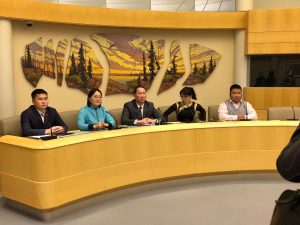 a concrete way, in order for the whole community to benefit in a tangible and worthwhile way.
a concrete way, in order for the whole community to benefit in a tangible and worthwhile way.
He also spoke about the need to work together to come up with mutually beneficial goals, to negotiate and take time to understand what each side would get from the process. In Canada, negotiations can take many years for some of the large extraction projects to bring all stakeholders together to see the maximum impacts, and the agreement will remain intact for the life of the mine.
While Local Benefit Agreements do exist in Mongolia by law, the implementation of the tool is incomplete, and it was agreed that much could be done to implement these agreements more effectively so that more people can benefit from resource extraction.
Environment
Both regions share a love of nature and the environment and an interest in working in a balanced approach together with respect for environment so that everyone’s interests are well balanced. It was clear to the Mongolian delegation that local Indigenous leaders in Yellowknife had a deep love of the environment, and that respect for the earth and environment is high on the agenda. They learned about the different land-use plans, resource development and management programs and initiatives put in place to ensure they are effective stewards of their traditional land.
Local and Indigenous Involvement
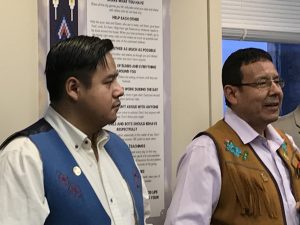
Integrating local populations with resource development projects in an economically-beneficial way, such as providing services, supplying goods, and skills training for employment, is seen as a priority. The delegation was impressed at the culture of working together and respecting each other, and the open communication with which to negotiate their standpoints with the government and develop solid contracts with companies and build local employment.
Training
Training stood out as a particularly notable point for the Mongolian delegates. The visit to the Mine Training Society highlighted the rigorous training to carefully selected candidates, and the importance of linking this training directly with job offers. This solid training, in addition to the importance of re-training and and continued mentorship and passing along this knowledge, are key to a highly-qualified workforce and to the long term sustainability of community involvement in the resource development sector.
Gender
While Mongolia currently has the legal framework in place for gender equality (a 2011 Law on Gender Equality and a recent update on the National Program on Gender Equality in April 2017), the implementation of these remain a challenge. Part of the MERIT project’s mandate is to help partners understand that gender should be central to government planning, budgeting, monitoring, evaluation and reporting. This approach is starting to take shape, and to this end, five of the ten Mongolian delegates selected were women, each from a variety of business and governmental backgrounds.
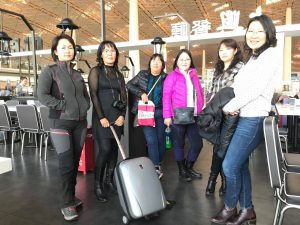
A key goal for them was to bring back to Mongolia the message that gender mainstreaming is no longer optional. The women observed in Yellowknife that there were many senior-level management opportunities for women, particularly in the resource development sector, as well as other technical industries. The women hoped to be able to increase the visibility of roles of women in management in Dornod province, as well as an increased acknowledgement of women in these roles. The group also learned about the improved safety and equipment utilization statistics of equipment operated by women.
Governance
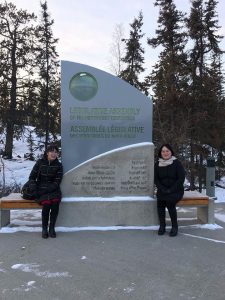
The Mongolian representatives observed that the stability of legal and legislative framework in Canada creates a stable environment for investors, helping to ensure plans and agreements will be carried out. Many businesses are built with long term visions and plans with clear goals and objectives, within a stable legislative framework. Communities can benefit better if they organize with companies because of the scope of the projects, when corporations benefit, so do the communities. The delegation acknowledged that in Mongolia they need to understand these processes better and how to move forward in order to build capacity in an effective way.
The ten representatives from Mongolia came away with many things they hoped to bring back to Dornod to inspire their local communities to modify or create new programs tailored to their unique local context. It was recognized that a very effective way to provide benefits from resource extraction to local people and communities is through Impact Benefit Agreements, and although the structure and implementation will be different than in Canada, it still provides a good example. The time is right to change structures in Mongolia to ensure all stakeholders – local communities, resource development companies, and the government – can benefit positively from sustainable management of resources and processes in the resource development sector.
The MERIT Project (Mongolia: Enhancing Resource Management through Institutional Transformation) is a seven-year partnership between CESO (Canadian Executive Service Organization) and WUSC (World University Service of Canada), funded by Global Affairs Canada. The project’s goal is to strengthen the capacity of the public sector in responsible resource management in order to maximize its contribution to sustainable economic and social development.
More photos from the exchange:
 | 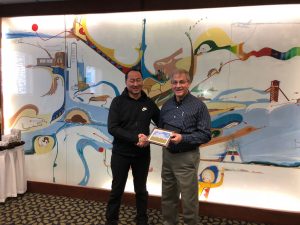 |
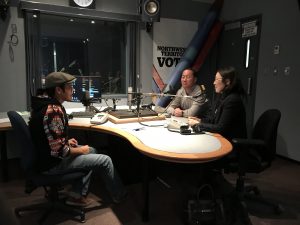 |  |
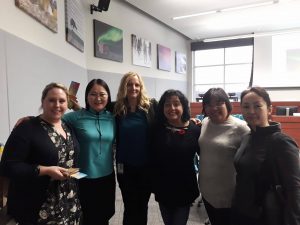 | 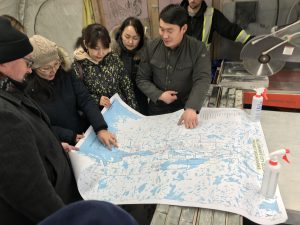 |
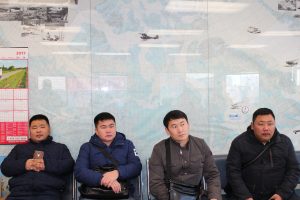 | 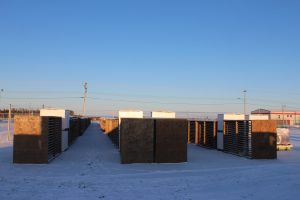 |
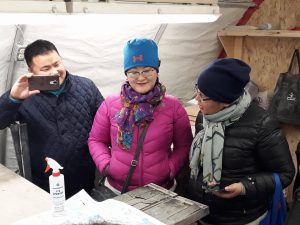 | 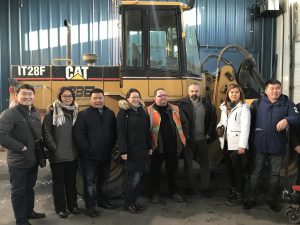 |
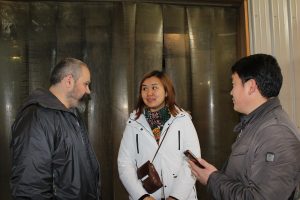 | 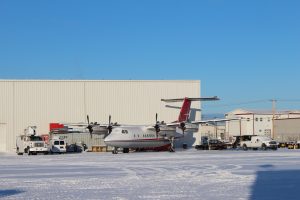 |
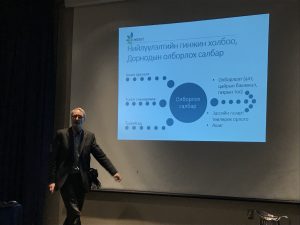 | 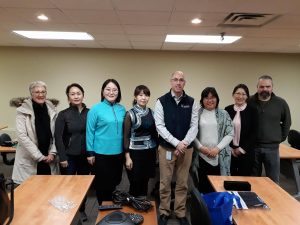 |
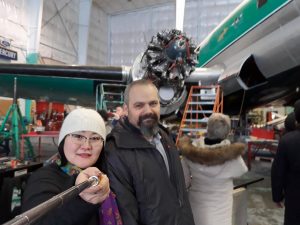 | 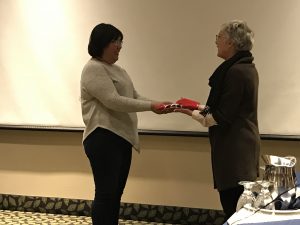 |
